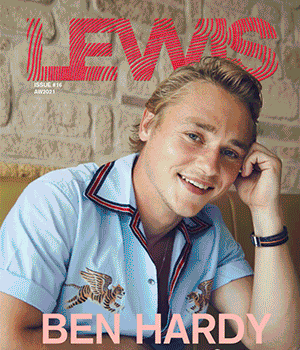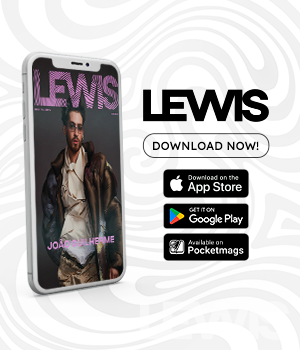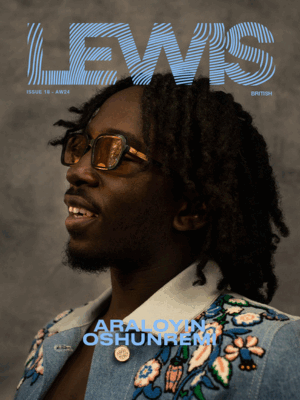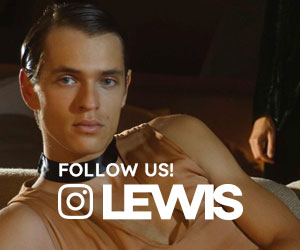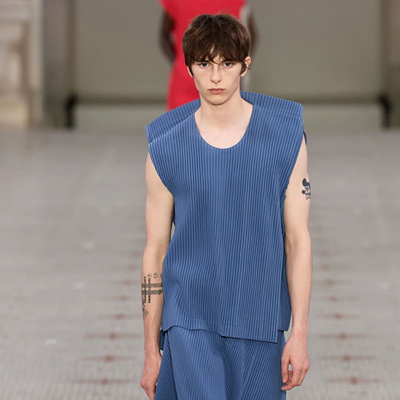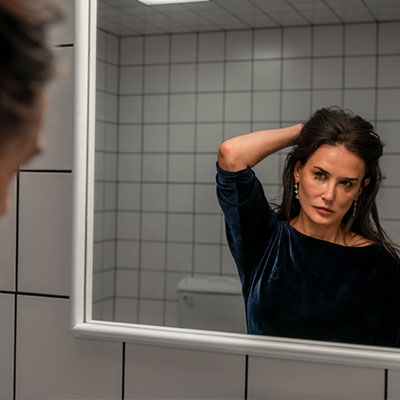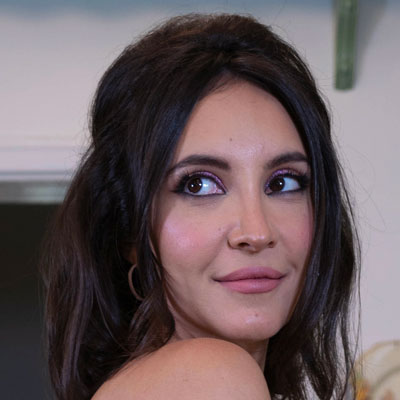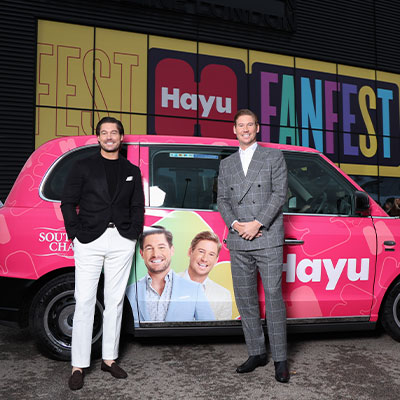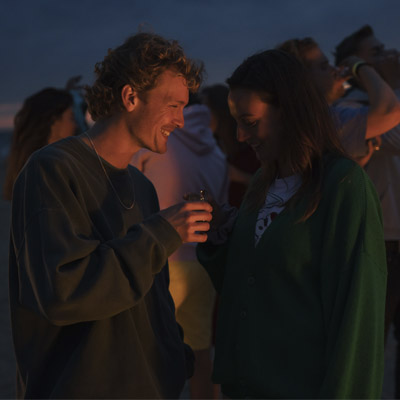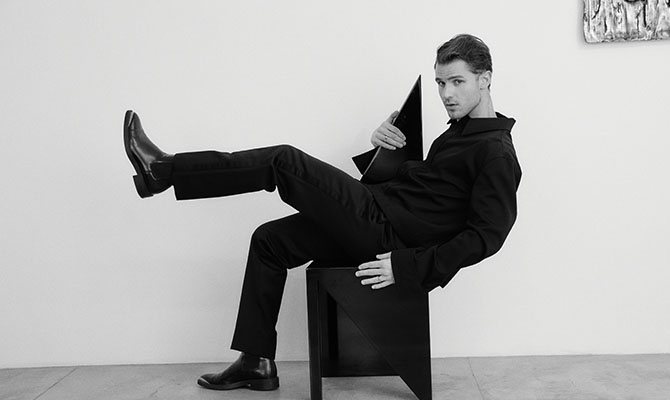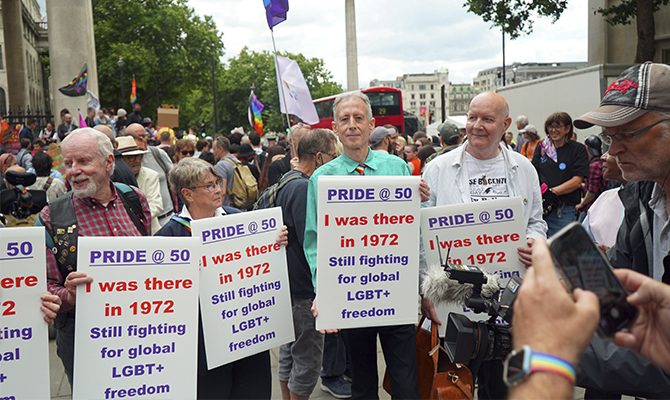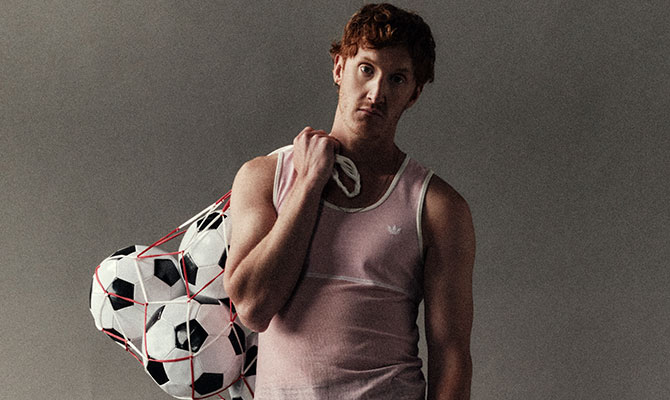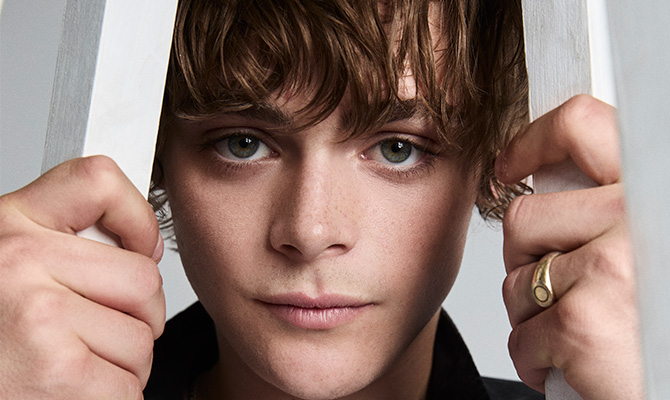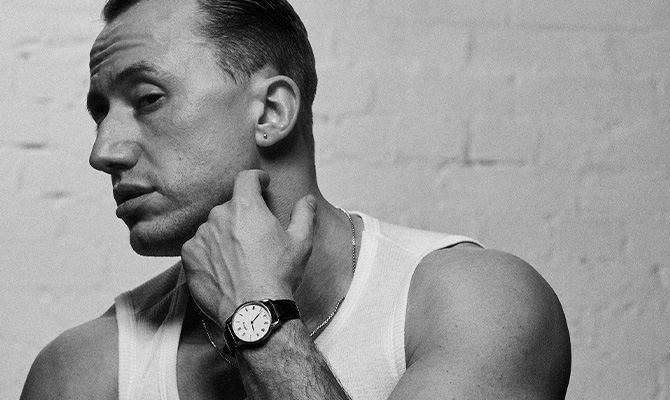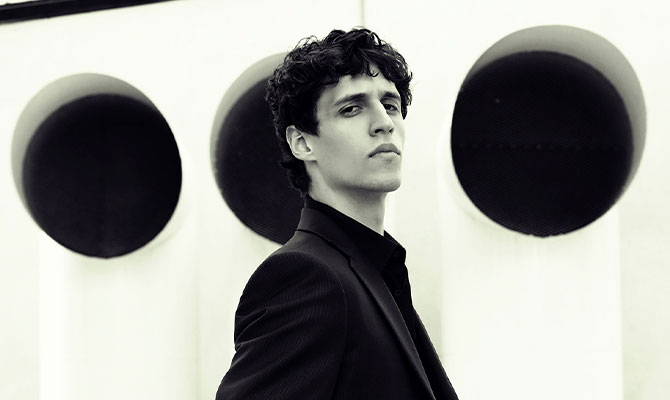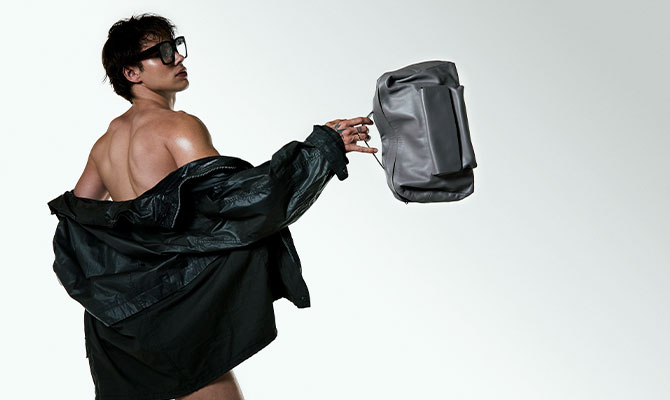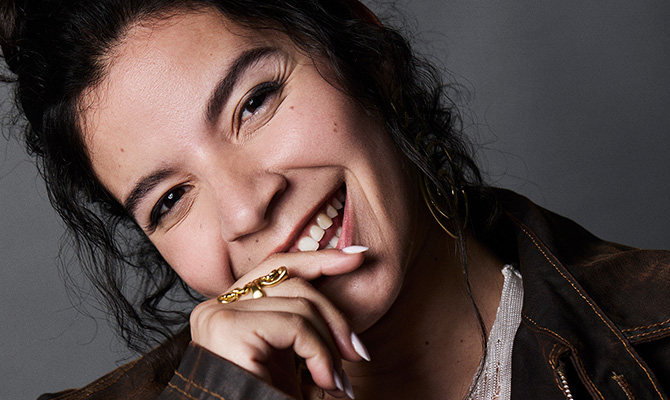‘this interview was conducted prior to the SAG strikes’
Welcome to an exclusive interview with the versatile and talented actor, Dino Fetscher. As he gears up to grace our screens in the highly anticipated second season of Apple TV+’s sci-fi series, Foundation, Dino’s remarkable journey in the world of entertainment has been nothing short of awe-inspiring.
From his critically acclaimed portrayal in the poignant play The Normal Heart to captivating performances in popular television dramas like Humans and Years and Years, Dino’s acting prowess knows no bounds.
Join us as we delve into his experiences, insights, and the creative process that has brought his characters to life on both stage and screen. Get ready to be enthralled by this engaging Q&A session that sheds light on the artistry and brilliance of Dino Fetscher.
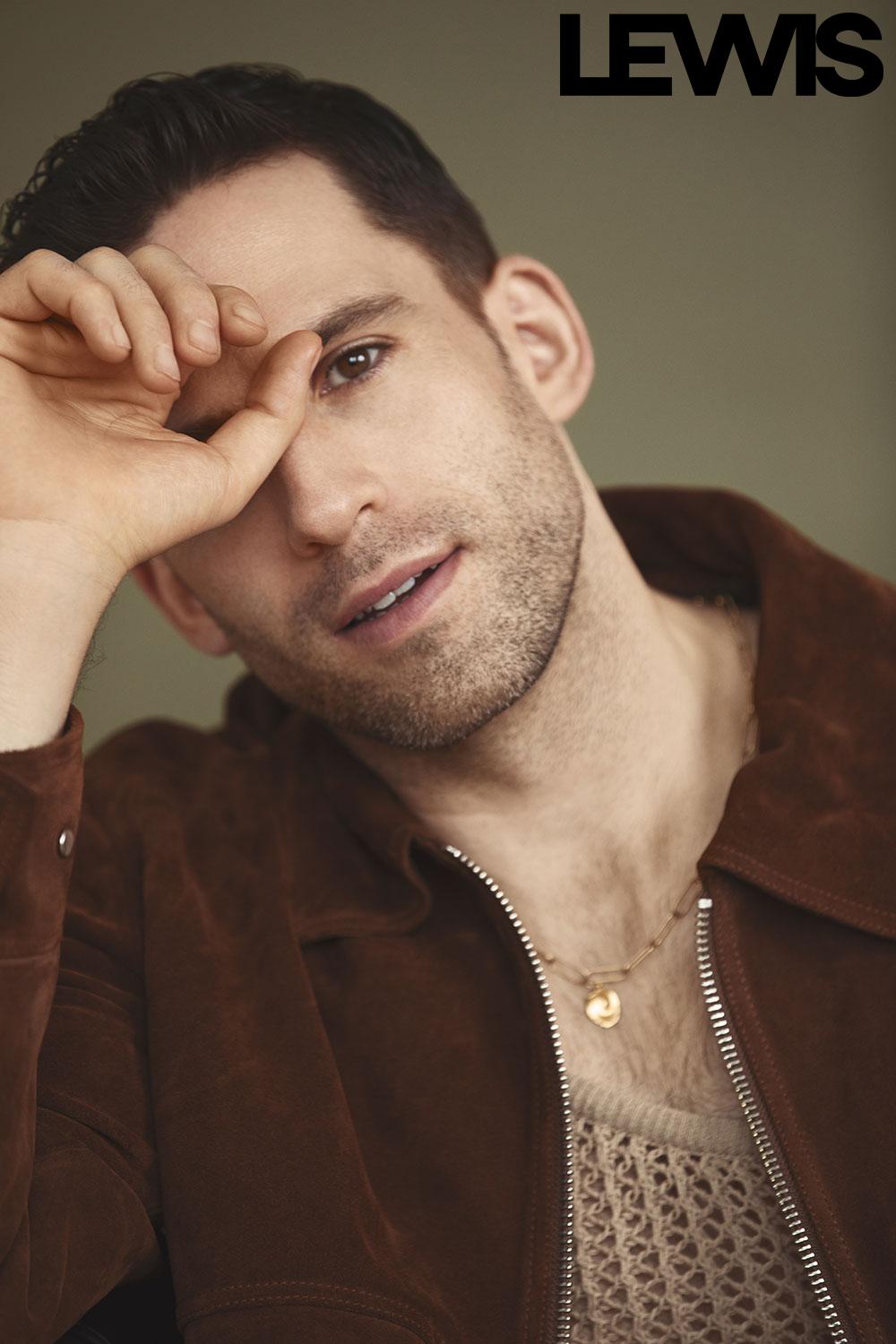
1) You’re playing a new character in the Foundation universe, what can you tell us about them? How would you describe the challenges your character faces and how they contribute to the overall storyline?
Apple have been keen to keep my character secret as a surprise for the fans, so I can’t go into too much detail; but I can tell you that he’s a badass and was so much fun to play! My character, Glawen Ker, serves high up in Empire’s fleet (think the military meets air force meets the navy – on spaceships), he’s a martial arts expert and second in command. Glay is considered, feeling and deadly, he has experienced great darkness and loss, and is wise beyond his years as a result. He goes on a beautiful journey of growth and discovery in the series, that ends up being an integral part of the series.
2) You worked with Ben Daniels in The Normal Heart, what was it like working with him again in a different capacity?
I absolutely adore Ben. We had the most incredible experience working together on The Normal Heart and became such good friends – so when we found out we were doing Foundation together we were hysterical. We literally finished The Normal Heart and then were on a plane to Ireland to film within days. We worked together for an entire year, back to back. Filming with him all over Europe was basically like being on holiday with your best mate! We had a blast. Ben and I are similar in many ways, including in how we work; which was such a gift in all of our preparation and approach to this series. We both love crafting a very detailed backstory, we love to immerse ourselves in a lot of research, we both love to rehearse and we both love having a laugh – so it was ideal. It was a really exciting process on this job especially, as we worked closely the writers and our showrunner, David Goyer, on helping to craft our characters arc throughout the series, which was such an amazing experience for me as an artist. I have learned so much about my craft, sense of agency and play through working with Ben and I’m so grateful for that.
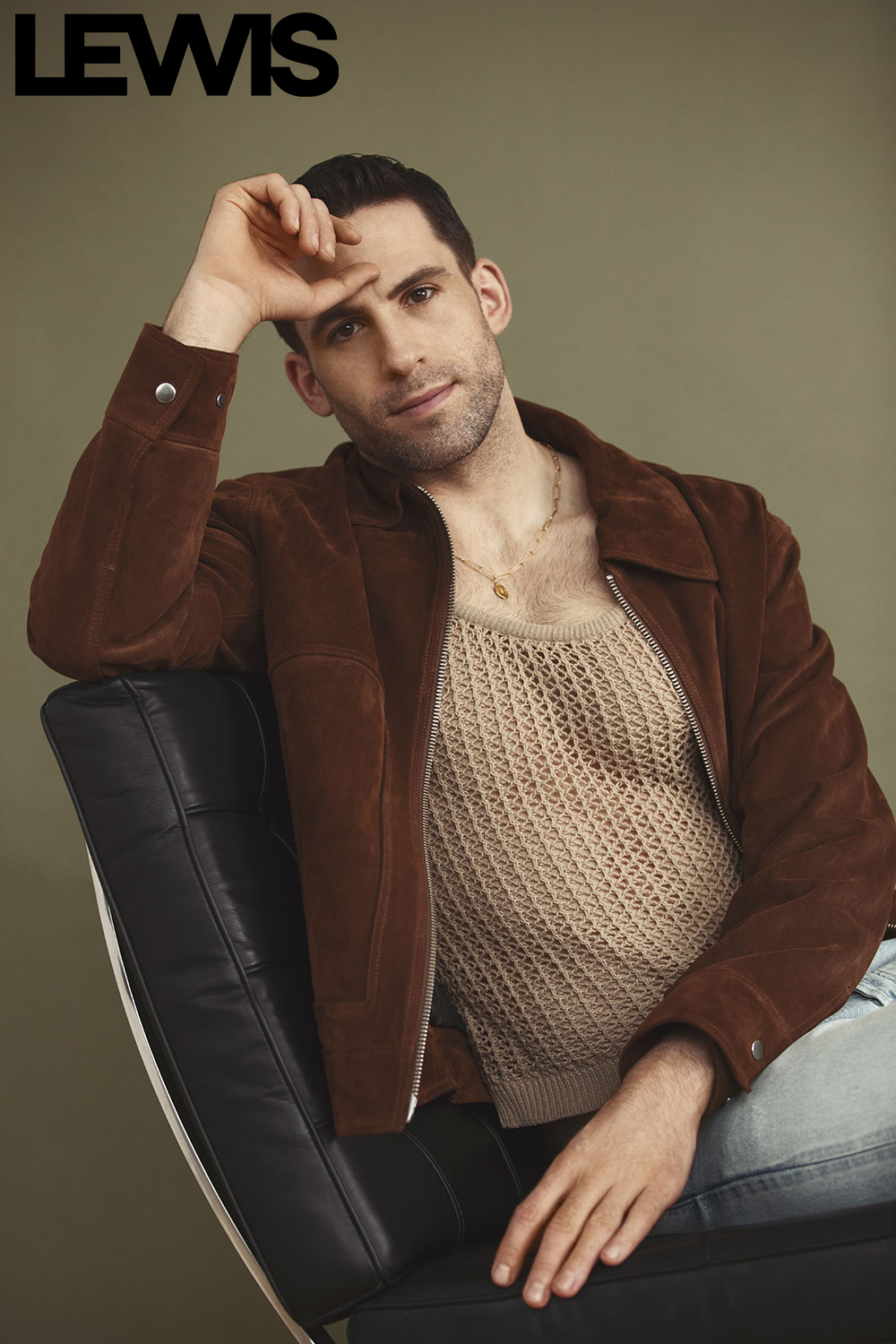
3) What draws you to the Sci-Fi genre? Do you enjoy it? What about the genre makes it fun to film?
I have always been attracted to sci-fi, horror and fantasy genres. I love witches, monsters, magic, space and everything in-between. It’s just so much fun to do, there’s such scope for play and exploration. It really is the pinnacle of imagination for me – getting to play a space soldier thousands of years in the future or a sentient humanoid robot in the present, is mind blowing. I have had so much fun carving these characters out and bringing them to life. There’s something about doing sci-fi that feels like you’re a kid again, playing with your friends in the street! I just love it all; the fight training, the wire work, the mad costumes; I’m always asking for more whenever I do sci-fi “More prosthetics! More fighting! More flying!”
4) The normal heart is a powerful play that addresses the HIV/AIDS crisis in the 1980s. How did you prepare for the role of Felix Turner, and what aspects of the character resonated with you personally?
Being cast to play Felix Turner in The Normal Heart was one of the biggest privileges of my life to date. The play is about real events, based on real-life heroes – I wanted to do it, my queer ancestors and the millions we lost to AIDS, the justice it deserved. I did a lot of research in preparation; books, archived New York Times papers, films, documentaries, art, medical records, symptoms and their progressions, early treatments, the science around HIV, American politics, NYC, fashion and being a journalist. I interviewed people who lived through the pandemic in New York who’d lost people, I spoke to my HIV+ friends about their experiences and I created a detailed backstory of Felix’s entire life up until the start of the play. From when I first read The Normal Heart, over 10 years ago, it was Felix that resonated with me the most; the ferocity and courage with which he loves is just so beautiful and I could really relate to his inner struggle with who he really was – as I think most queer person can. I was really attracted to Felix’s charm, wit, sensitivity and courage. The journey he goes on within the play is truly inspirational and so powerful; when I got my audition through I just knew I had to play him, and I feel very lucky to have been able to do so.
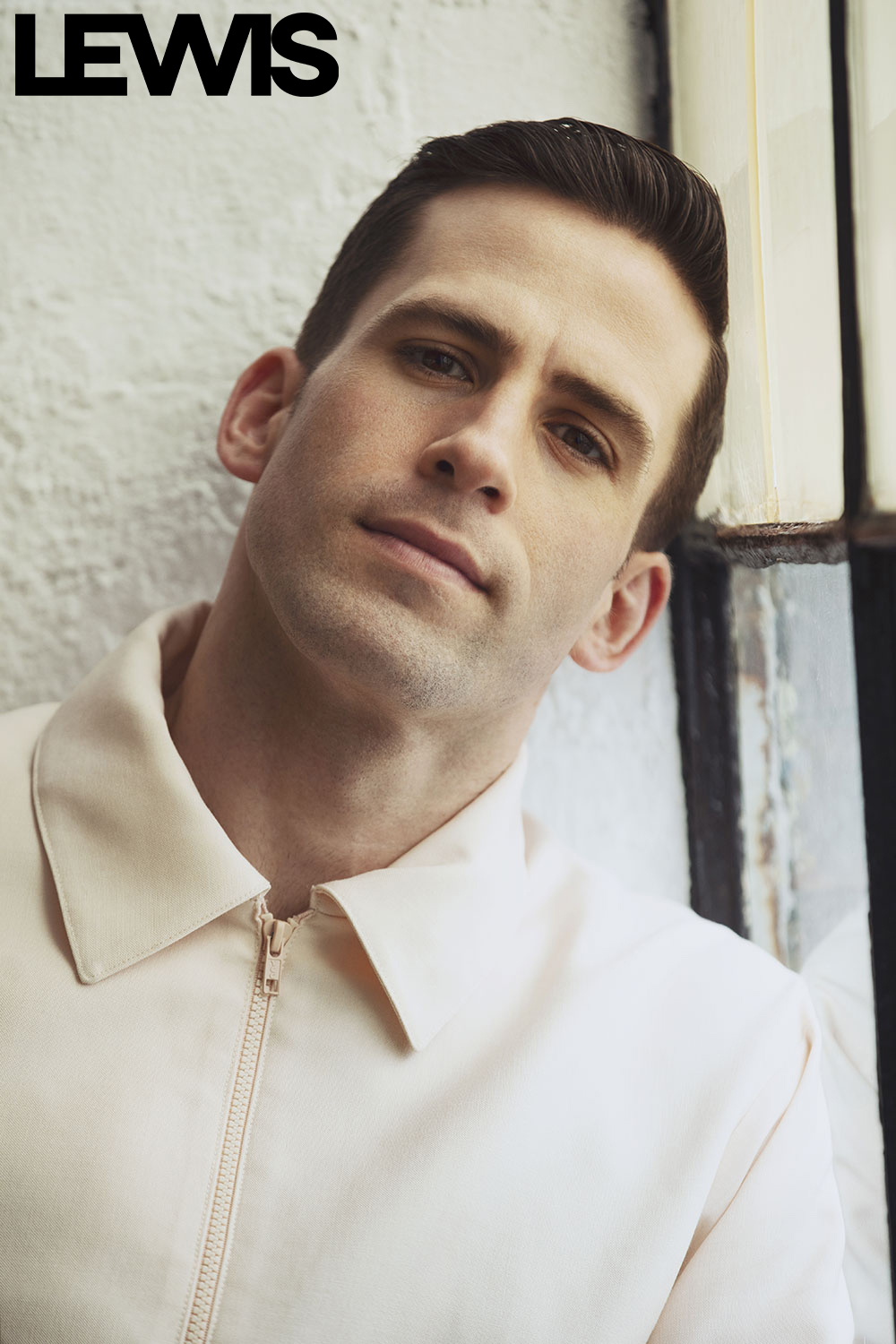
5) You’ve had the opportunity to work with acclaimed showrunners like David S Goyer and Russell T Davies. What unique qualities do you think they bring to their respective projects and how has their guidance influenced your acting career?
I feel very lucky to have worked with the likes of Russell and David, as well as a plethora of brilliant actors, writers and other artists – they’ve all taught me so much about my craft and life. Working with Russ though is always such a joy; he creates such a wonderful company of people – every job I’ve done with him has been a hoot, and I’ve made some very dear friends on his jobs. Russ is so specific with his vision of his shows, he knows exactly what he wants, every word he writes is so considered and intended; it’s a lot of fun to work with as an actor. Working with David on Foundation was such a brilliant experience for me: I’ve never worked on something on that big a scale, it was so exciting. The great thing about David is that he is really open to hearing your ideas about your character and the story – he really takes them on board. That job felt like such a collaboration, which was wonderful.
6) From your screen debut in Cucumber and Banana to your roles in Paranoid, Humans and Years and Years, you’ve been a part of diverse and critically acclaimed televisions series. How do you choose your projects, and what attracts you to a particular character or story line?
I’m very lucky in that I have a brilliant team who are very much on the same page as me in terms of taste – so that’s a big help in choosing projects. We have never disagreed on a job and always share the same enthusiasm about projects. When it comes to choosing what’s next I consider a lot of factors, but the story and it’s purpose are particularly important. I love scripts that simultaneously entertain and seep into your psyche, leaving you thinking about them long after they finish. I’m attracted to a massive range of genres and styles; from fantasy to classical to very stylised and everything in between: it really depends on the specific project. Character is of course a huge consideration for me – I’m attracted to very layered characters, with complexity and depth. I also love variety and a challenge! I am always keen to take roles outside of my comfort zone – that’s where the growth and magic happens for me. Playing queer characters is also something I relish – I think authenticity is so important today – it’s not always possible but I certainly believe it’s something we should always be striving for within our industry.
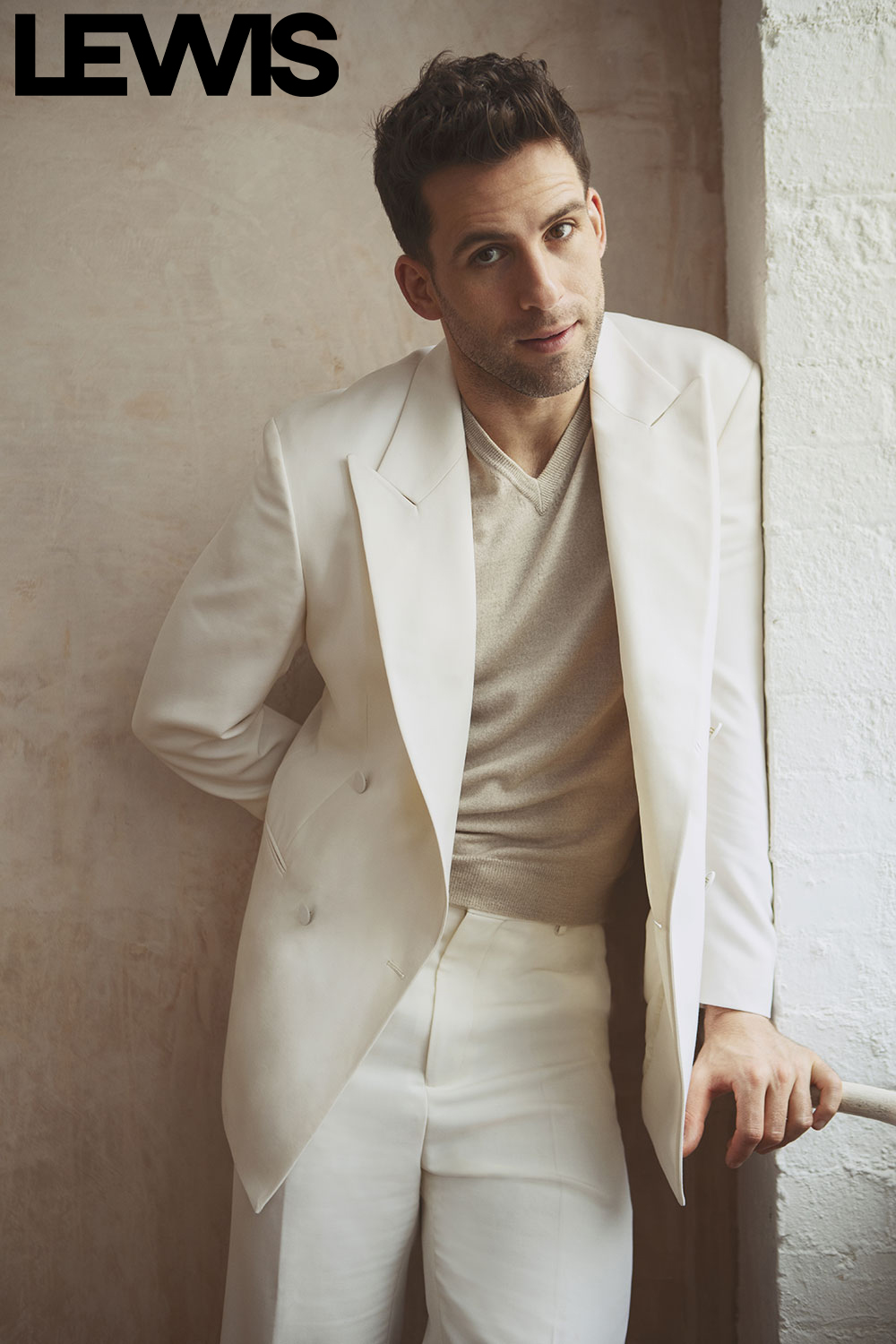
7) Foundation is set in a futuristic sci fi world. What elements of the shows world building and visual effects do you find most intriguing and how do they enhance the storytelling?
Working on Foundation was so exciting for many reasons, but the special effects and scale of sets they built were one of the absolute highlights. We used very little green screen when filming, most of it was all purpose built – on an epic scale. As an actor, when you get to play on what feels like a literal spaceship; it is such a gift. It’s a spring board for your imagination and allows to you really immerse yourself and get totally lost in the world. The locations we shot on literally felt other-worldly, which again kept feeding into my imagination and transporting me to outer space. In terms of the special effects, that is something I’ve only very recently been able to properly see – it’s such a monumental part of the show it took a year after filming to finish. Chris MacLean who is our special effects wizard on the show (and the nicest man you’ll ever meet) has done such a phenomenal job; the special effects are just so beautiful and tangible; the detail and richness is utterly outstanding – world-class stuff. I was literally so dumbfounded when I saw it at our recent premier, you watch it and go “this is TV?! It looks like Star Wars!”. It’s a wonderful moment for you as an actor because there are lots of elements you have to imagine on set; looking into sandograms, flying spaceships, wrestling with alien beasts (to name a few) – and when you see it all come together, to see Chris and his team’s artistry woven in alongside your work, really bringing everythjng to life, is a magical thing. It’s true collaboration and one of my favourite things about what I do.
8) Your portrayal of the synth ‘Stanley’ in Humans received acclaim from both critics and audiences. How did you approach playing a non-human character and what challenges did you face in bringing Stanley to life?
Playing Stanley was some of the most fun I have ever had on a job. I already loved Humans before I was even considered for the role, and would do synth impressions to freak my housemates out because I’m a weirdo. So, as you can imagine when I was cast as Stanley I was pretty ecstatic. In terms of my preparation I have to give a huge amount of credit to our incredible movement director Dan O’Neil: when you join humans as a synth you have to go to synth school, led by Dan. It was days of learning to move, sit, charge your battery, walk, sprint, breath, blink (only if you must – ideally no blinking). It was very intense and very fun! Myself, the other new series’ synths and the old; Gemma Chan, Emily Berrington et al, spent days cat walking, running through parks and improvising as robots – it was brilliant. I would take Stanley for a long walk every day through Clapham Common to nail the specific synth stride, my boyfriend at the time keeping his distance, too embarrassed to be seen with me. I rehearsed my scenes to death, to master that cool Alexa / Siri like robot fluidity of the voice and I worked closely with Dan on every scene to map out every inch of movement within it. It really was all Dan, he was on set every day to help, I can’t tell you how grateful I am to have got to work with him, I love that man.
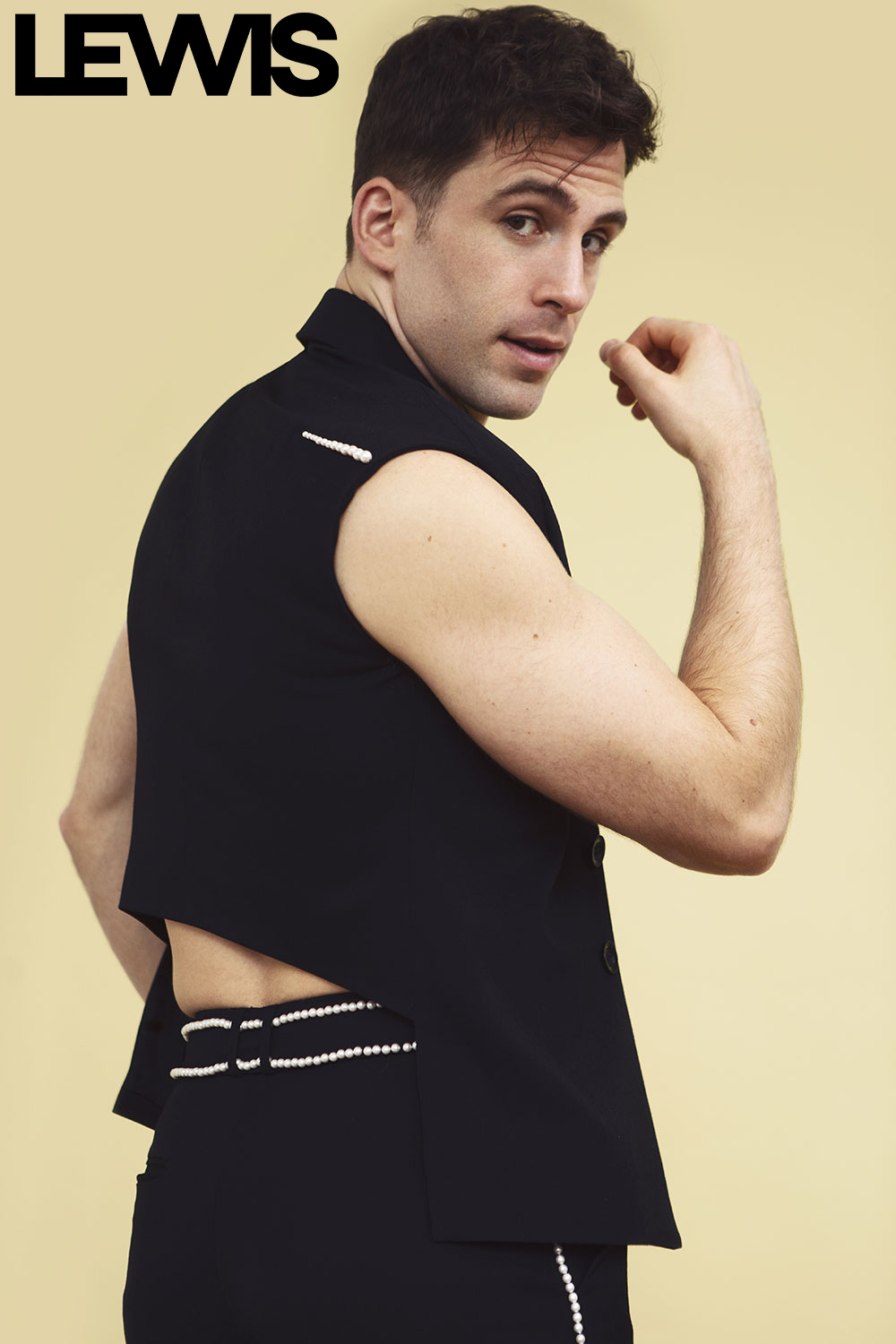
9) Being nominated for Best Supporting Actor at the Olivier awards and WhatsOnStage Awards for your role in The Normal Heart is a significant achievement how did you feel about the recognition, and how has it impacted your career moving forward?
That play and role are so very dear to my heart as an actor and as an LGBTQ+ person. They really mean a great deal to me and have taught me so much about the giants upon who’s shoulders we stand. So, to be recognised with such prestigious nominations was utterly magical and deeply touching. To be honest, I have no idea how it has directly affected my career moving forward, but I hope it leads me to more wonderful theatre opportunities.
10) As an actor, you’ve worked across different mediums, including theater, television, and film. How does your approach to acting differ in each medium, and do you have a favourite medium to work in?
There are of course differences in technique when it comes to stage and screen, but I would say the biggest factor, when it comes to my approach, is affected by rehearsal. In theatre you usually have an extensive period of rehearsal, with film you might have a little, and with television there is usually none. So, with theatre I turn up on day one with a plethora of ideas and choices, as opposed to made decisions, with nothing being set in stone. When working on screen, with much less/ no prior rehearsal, I will make much more solid decisions based off my own work, research and prior conversations with my director, and when I arrive on set I have a much stronger idea of how I will be playing the scene. My character is much more firmly set (not entirely of course). My immersion in research, backstory and imaginative work around story and character are always the same though, for theatre and screen. That said I’m always playing with how I approach a project, my process always changes depending on what I’m being given; I love experimenting with new stimuli and methods – so it’s always evolving. Theatre is where it started for me, so always has my heart, but screen was my first window into this world – I adore both! One of my favourite things about my job is the variety within the roles I get to play, the stories I get to tell and the ways in which they are told – be that on stage or on screen.
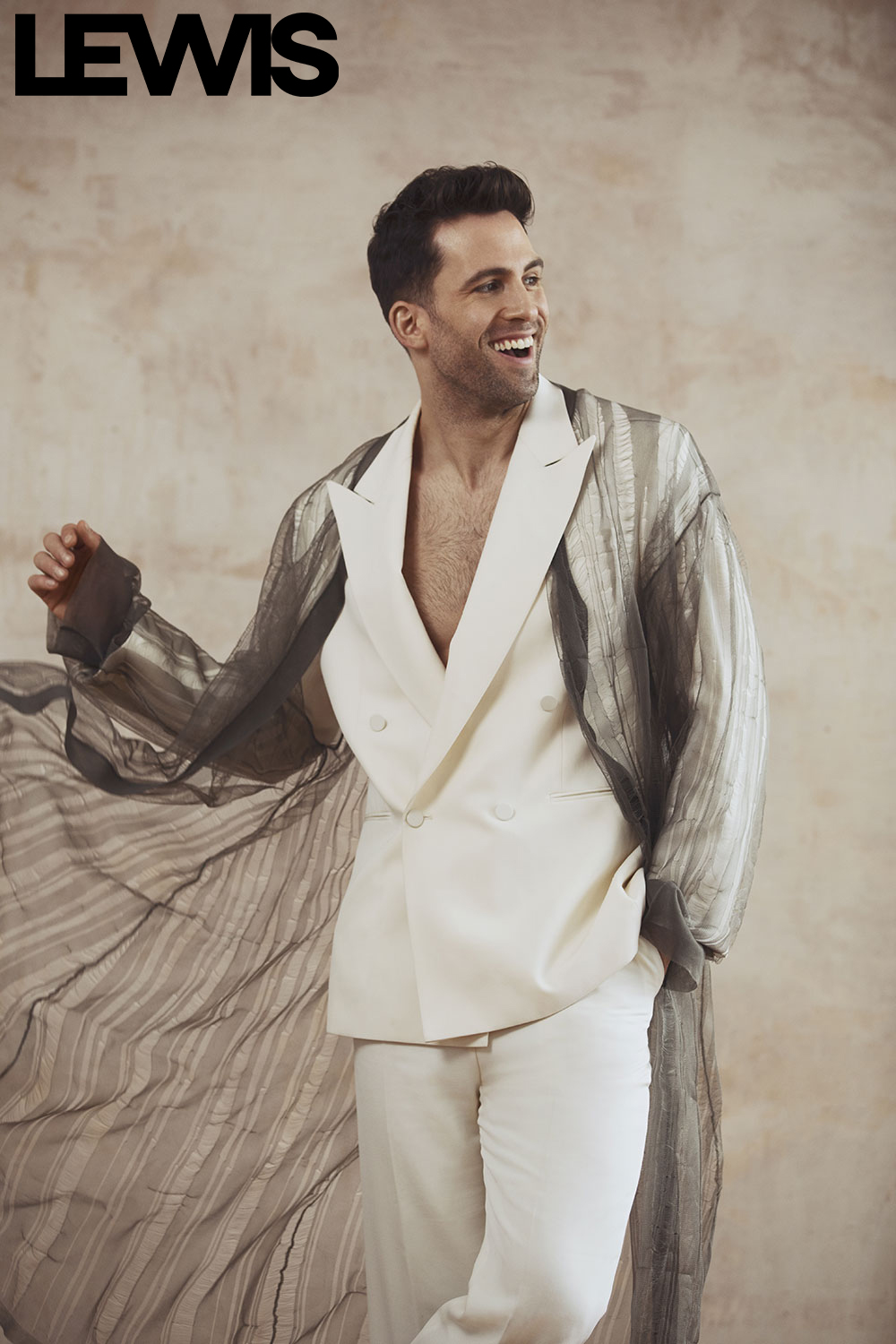
Foundation is now available on Apple TV

